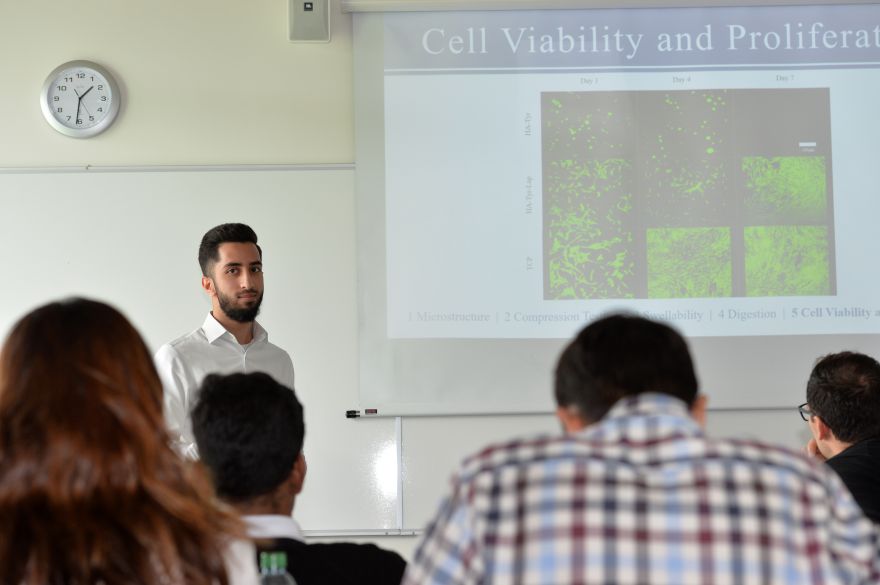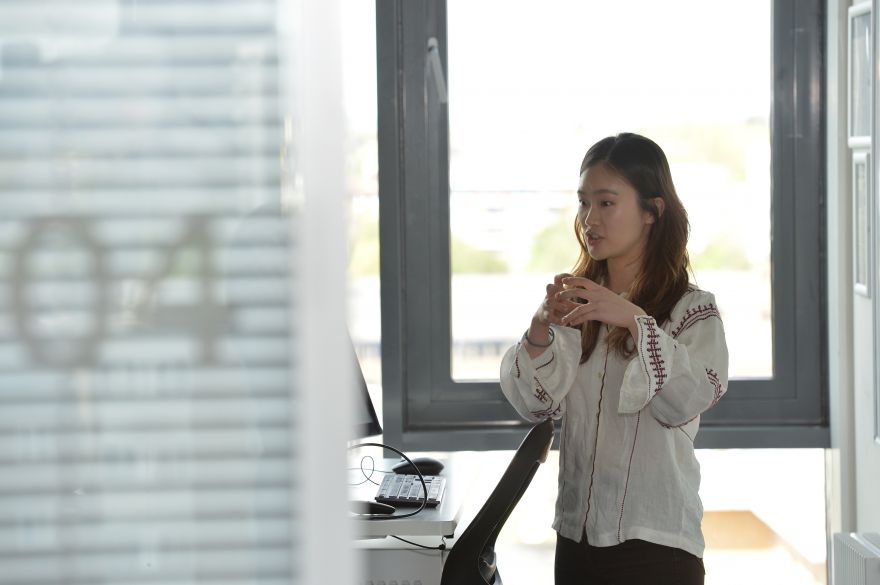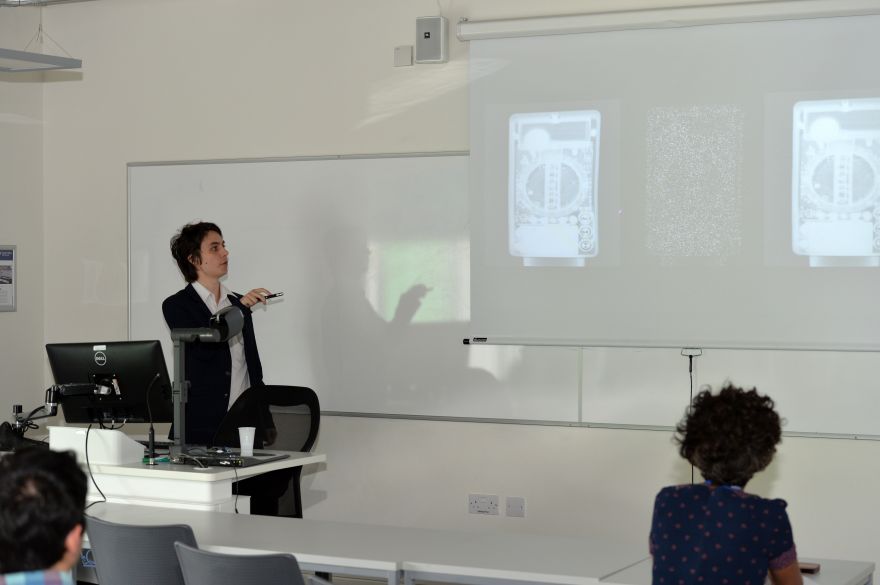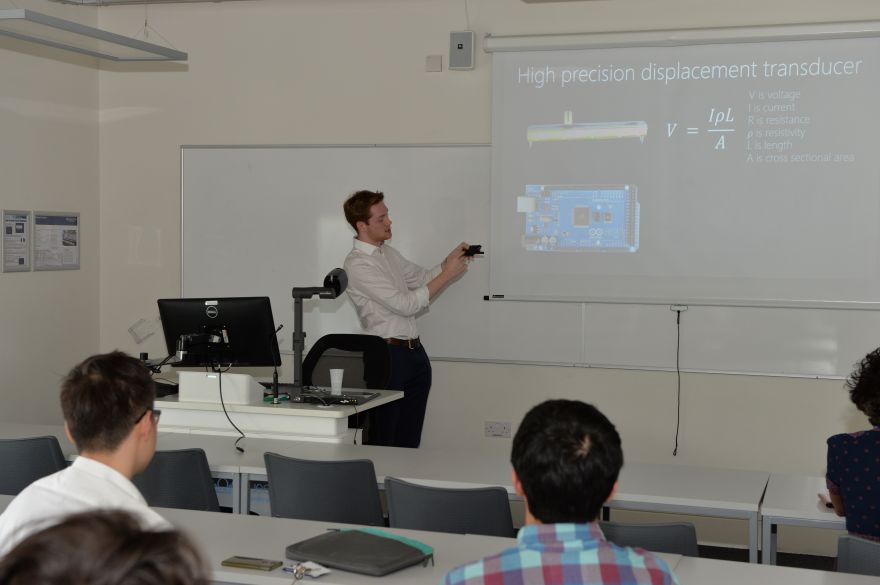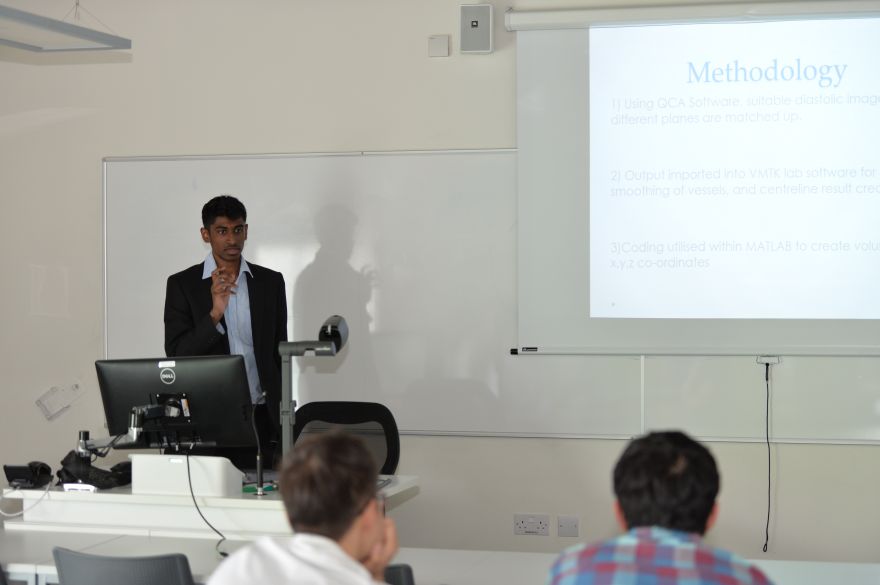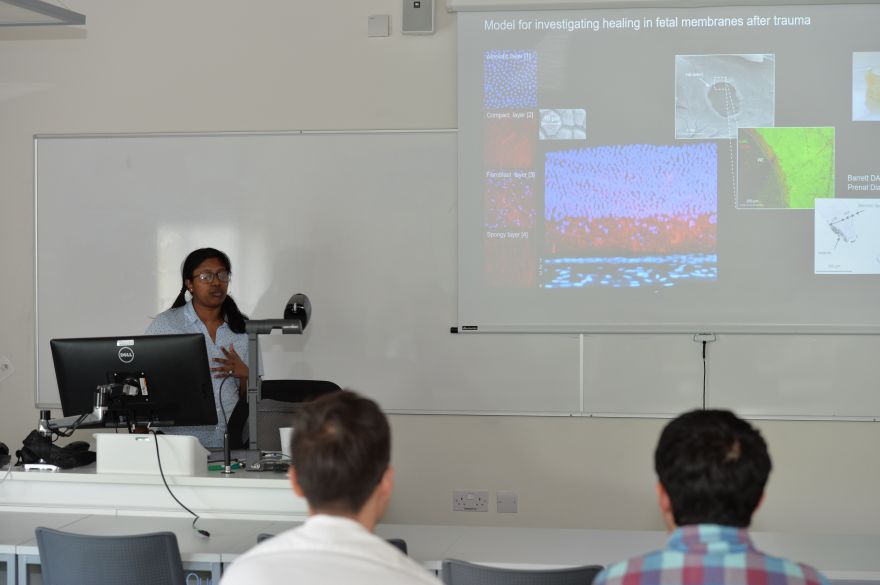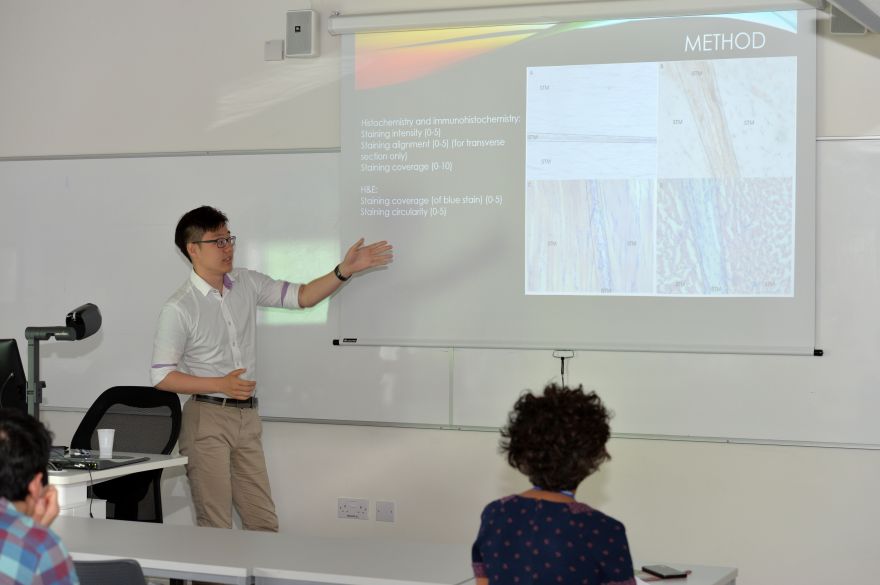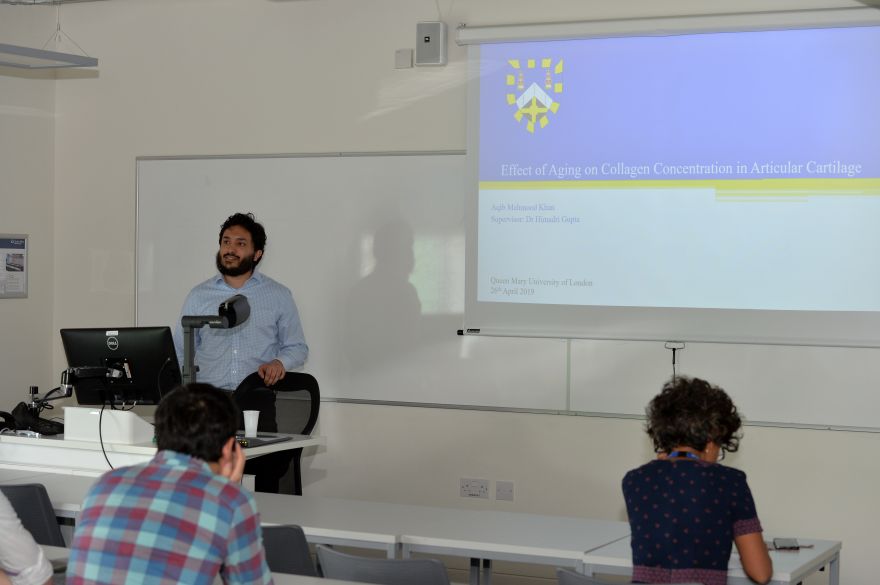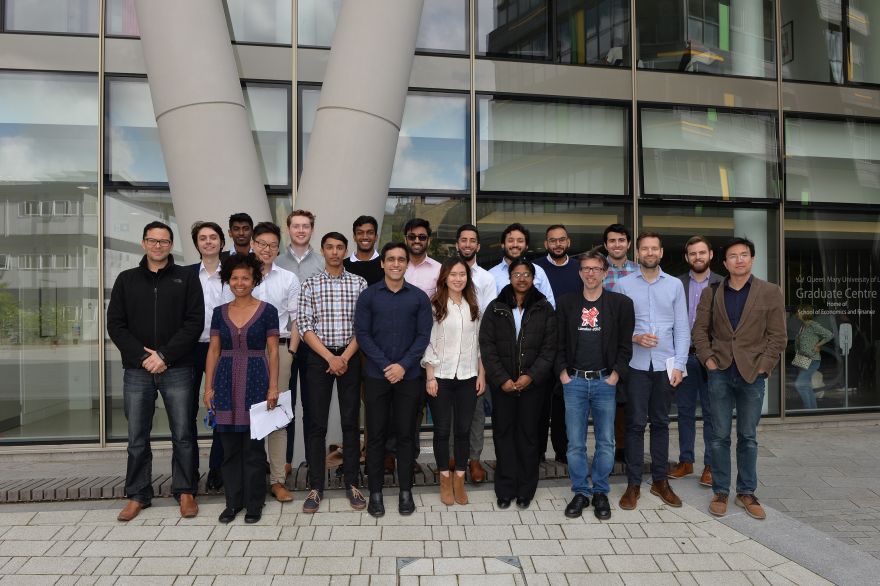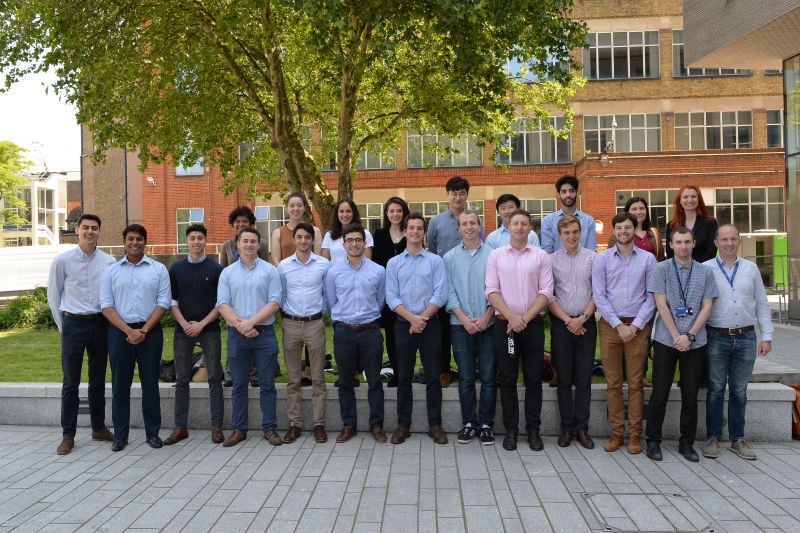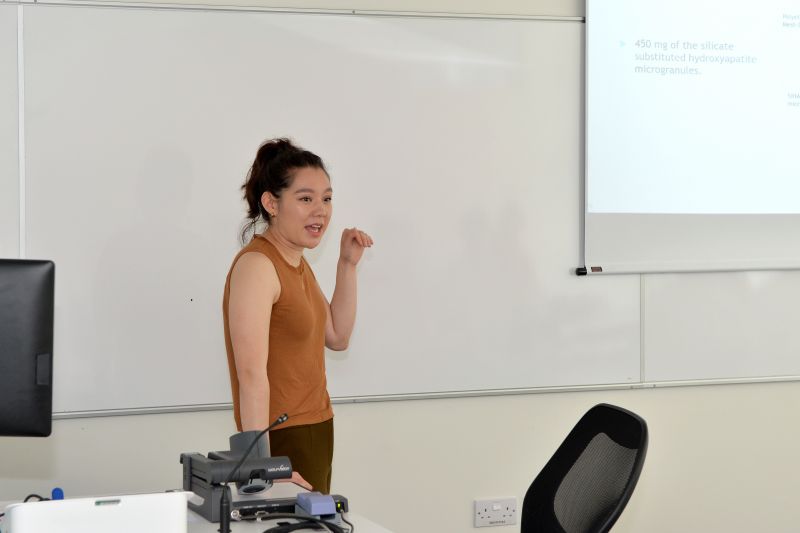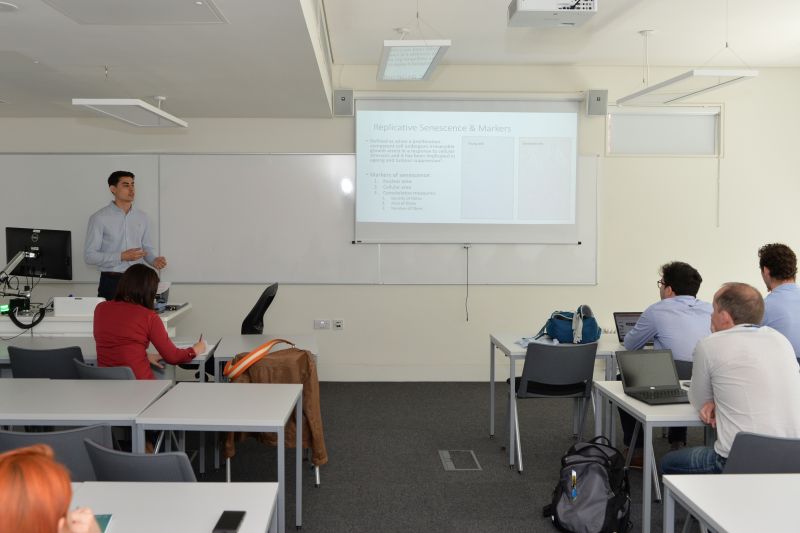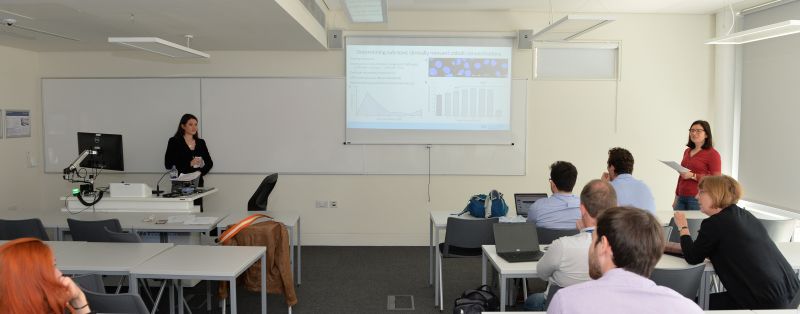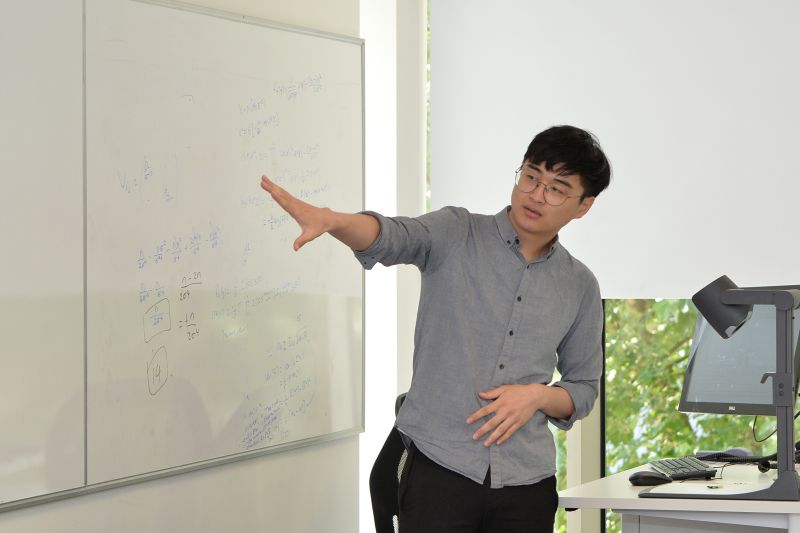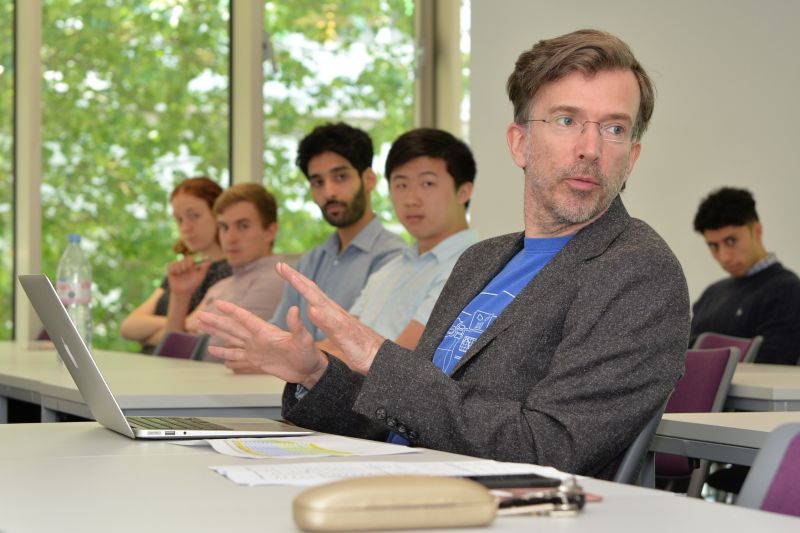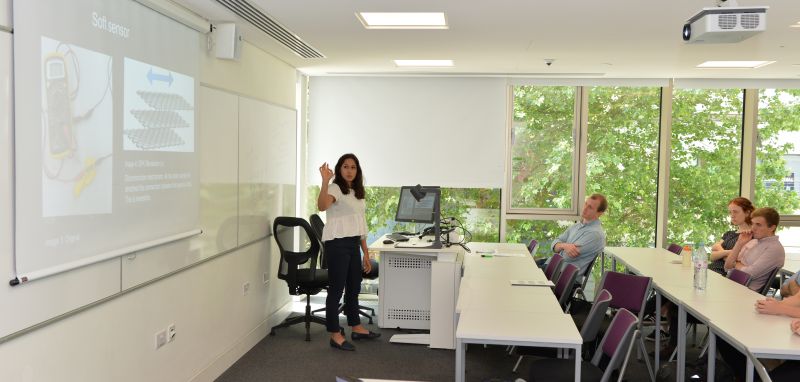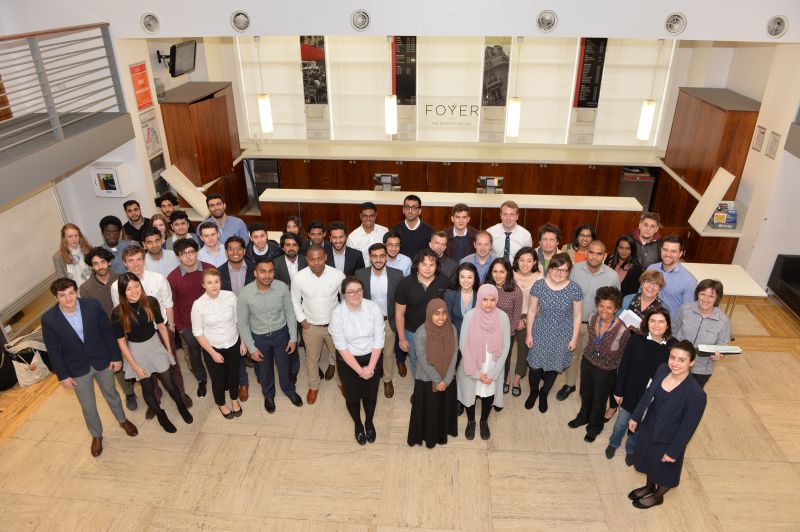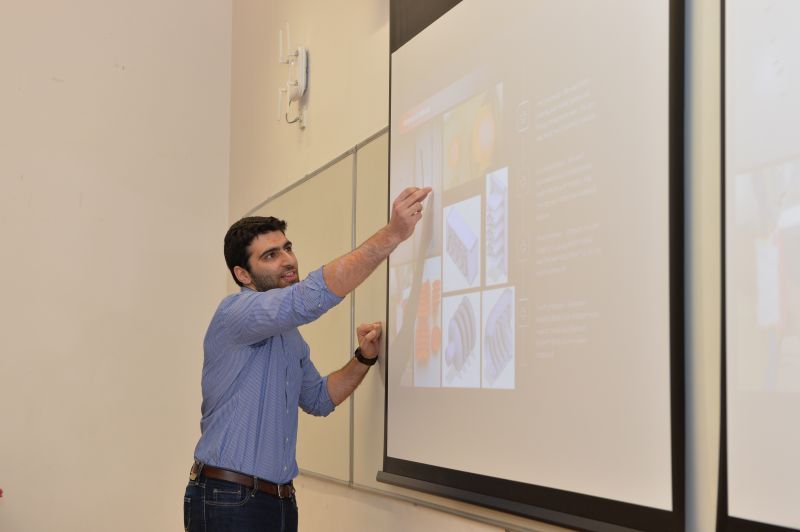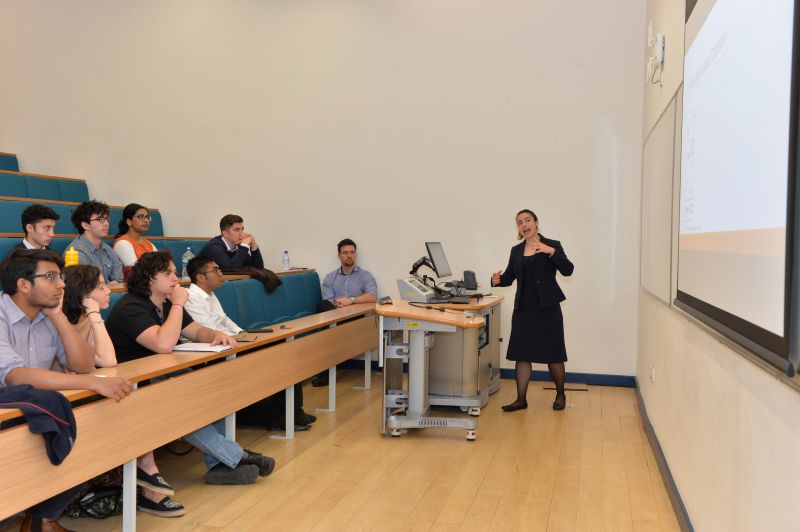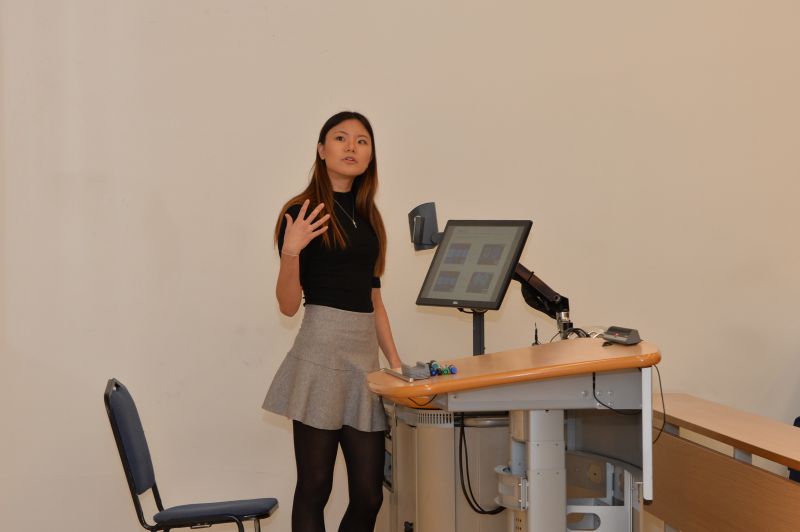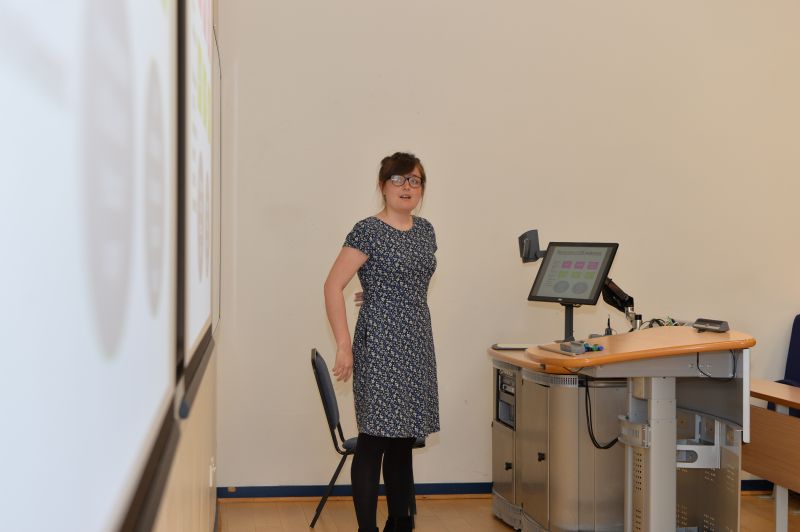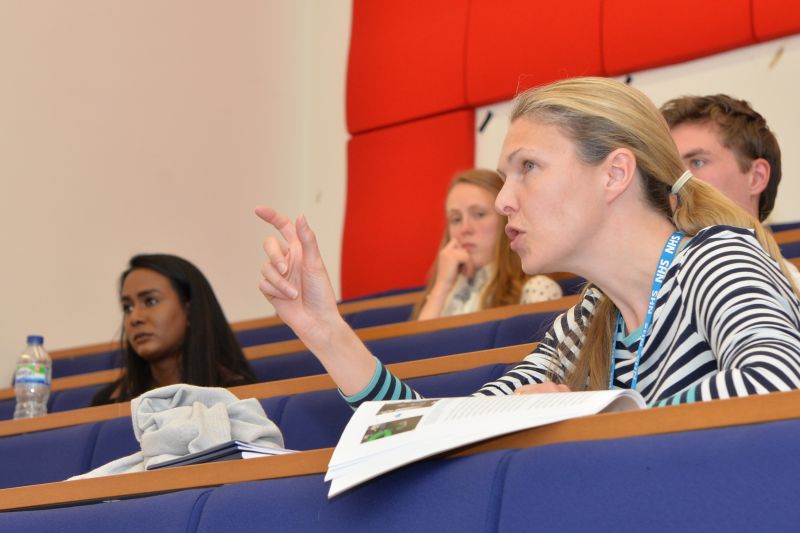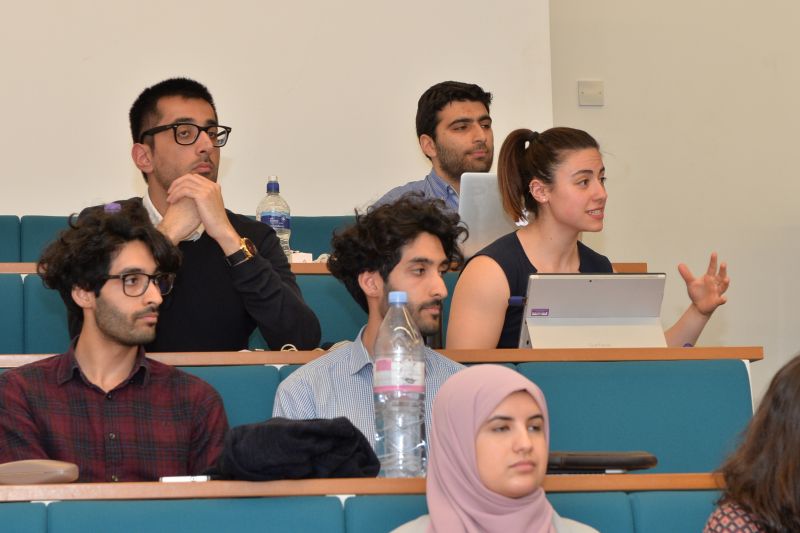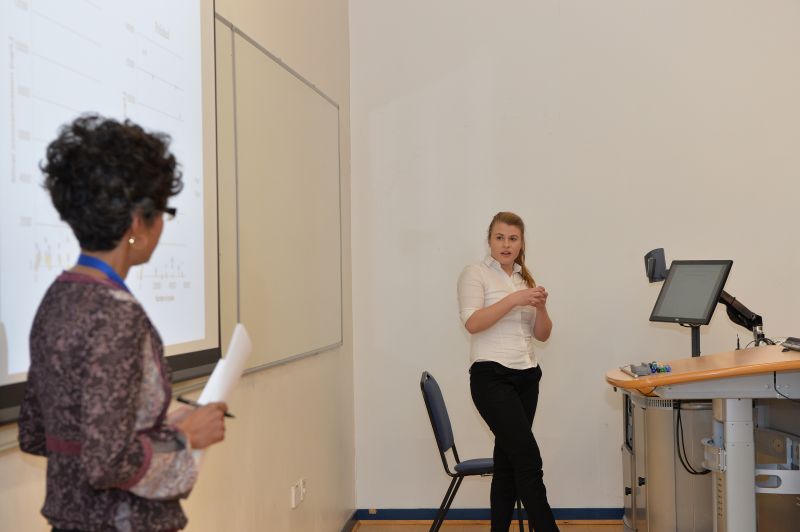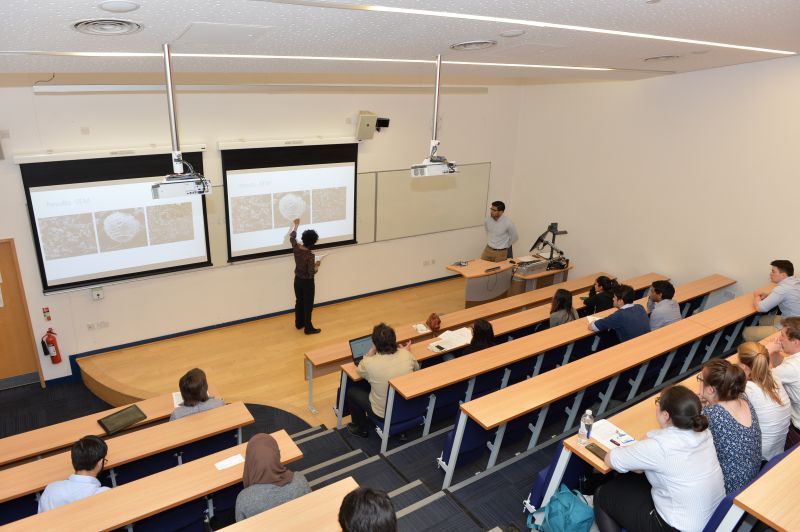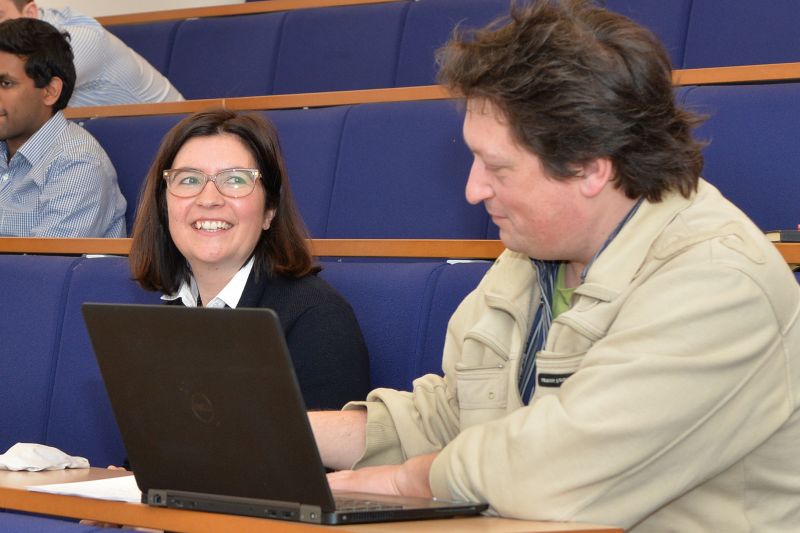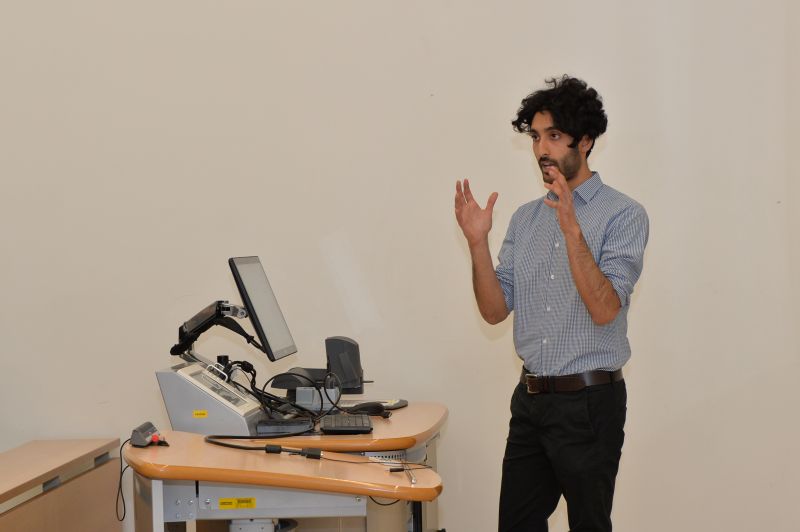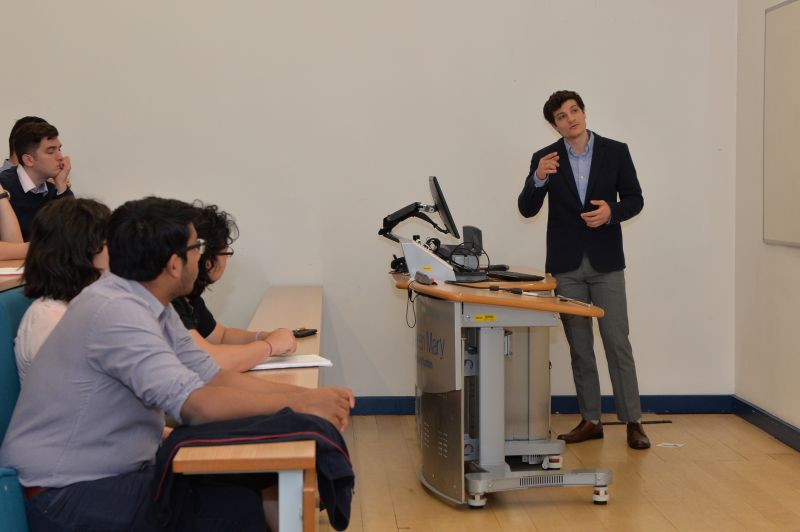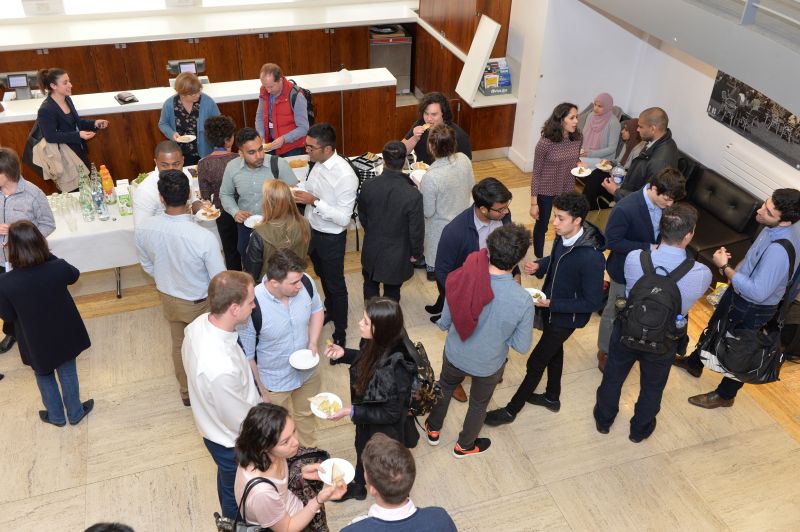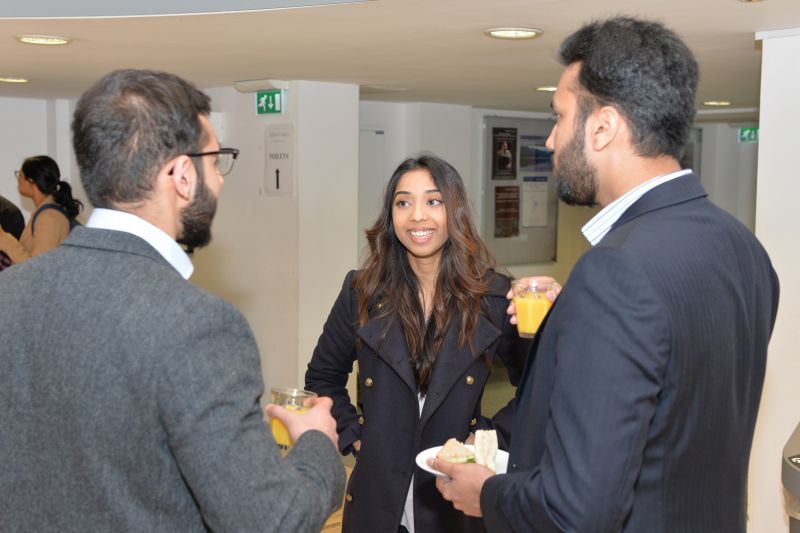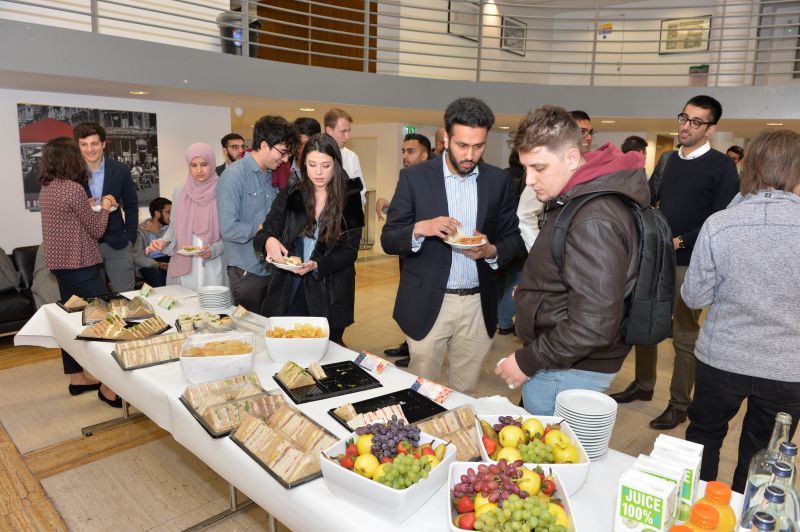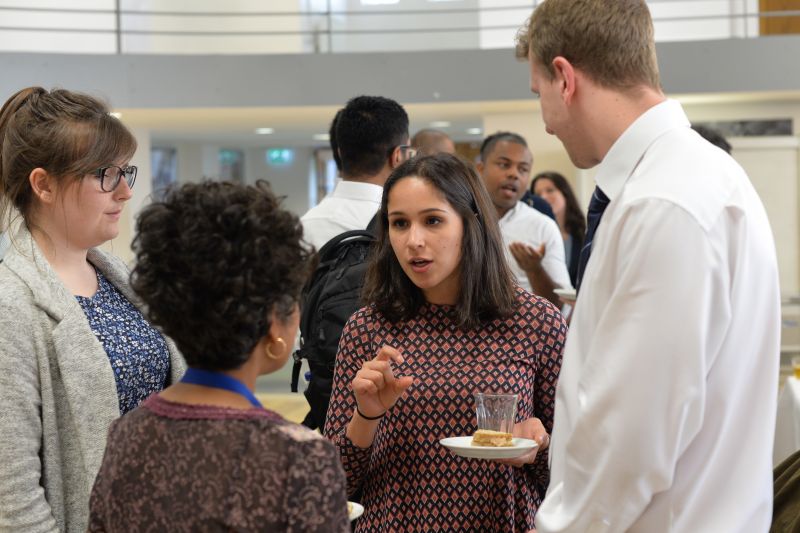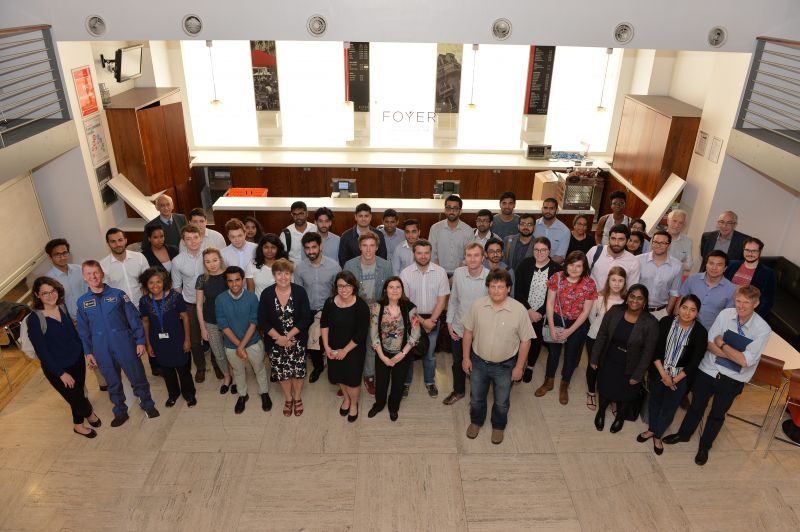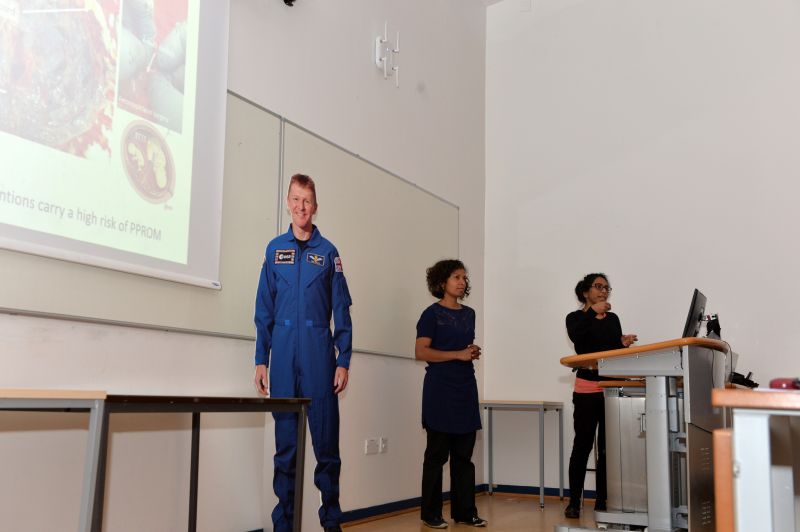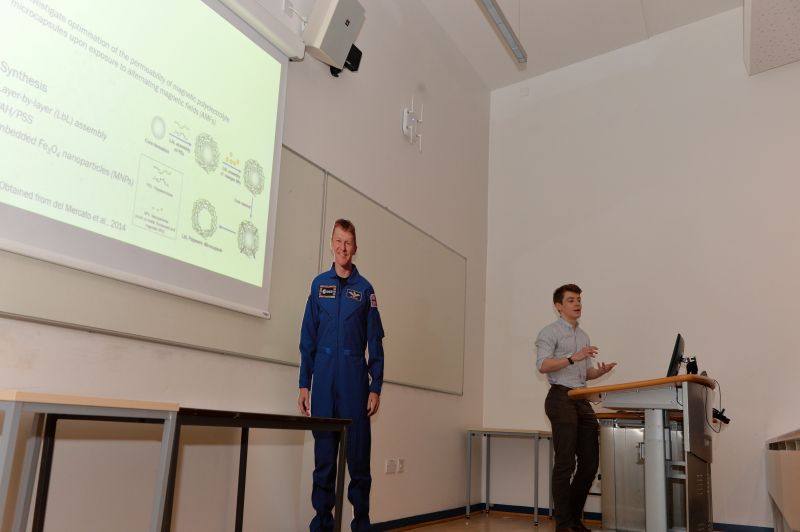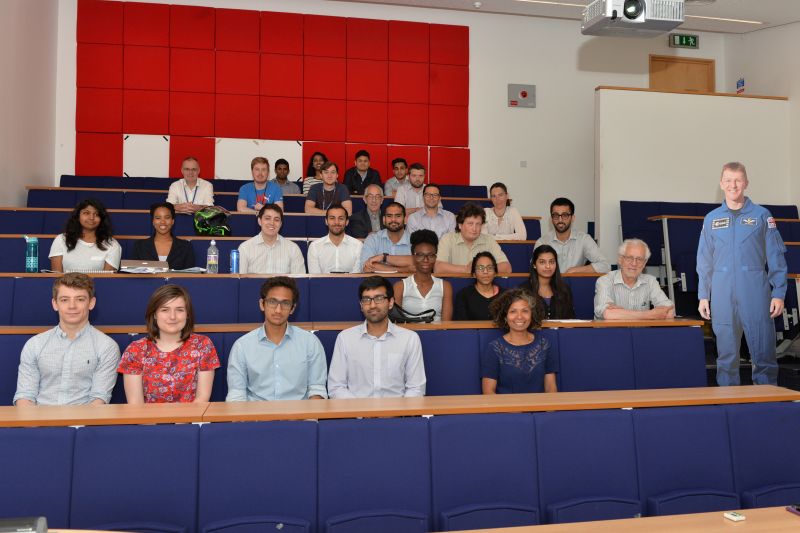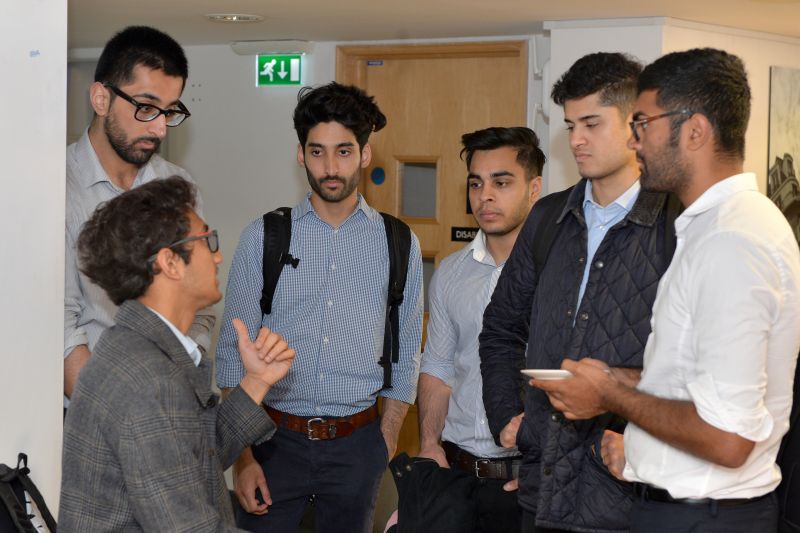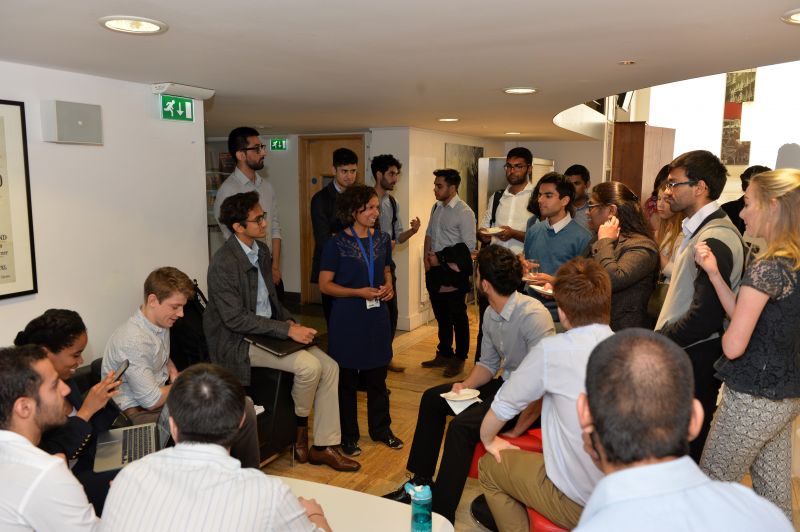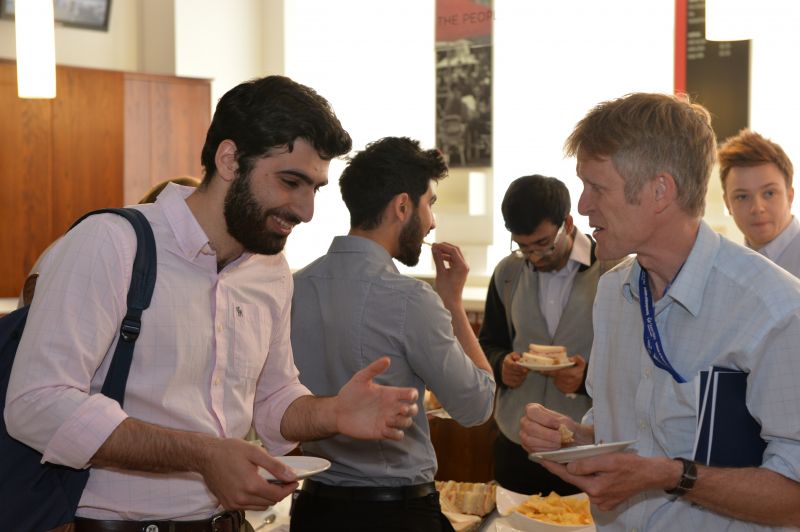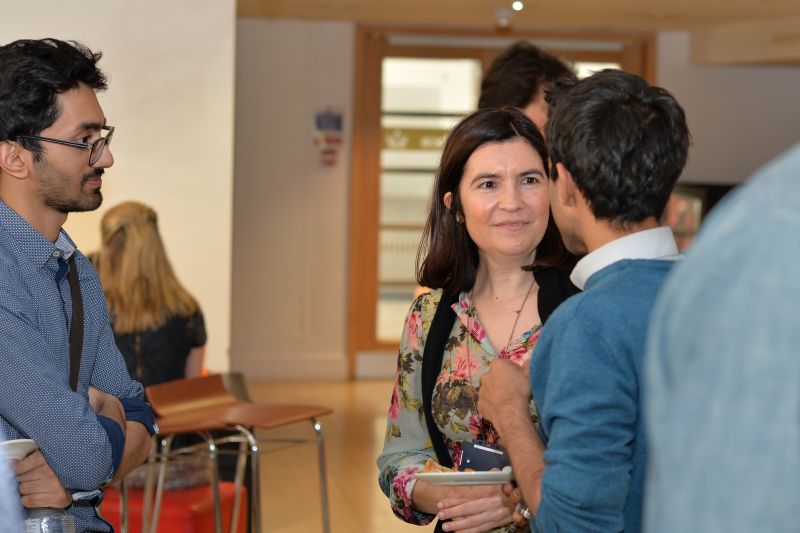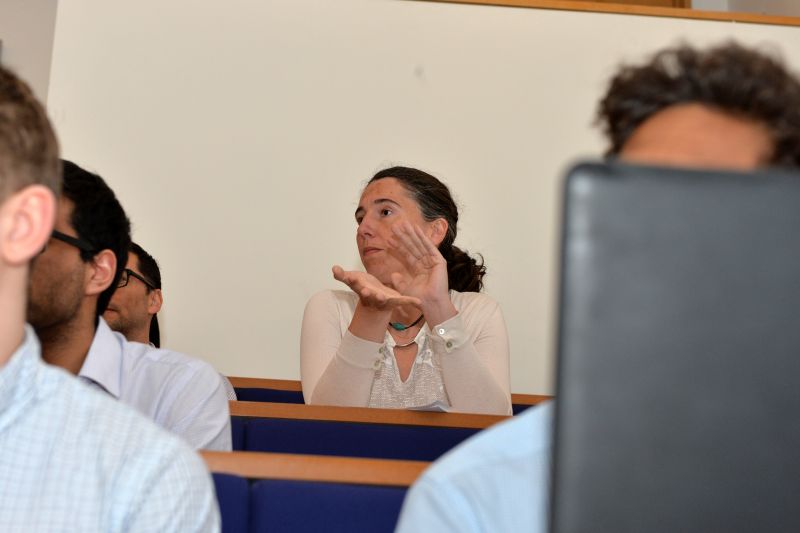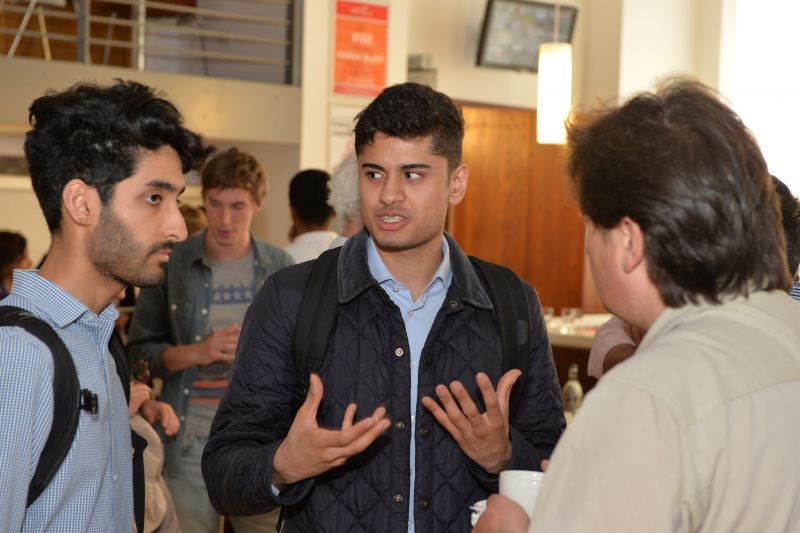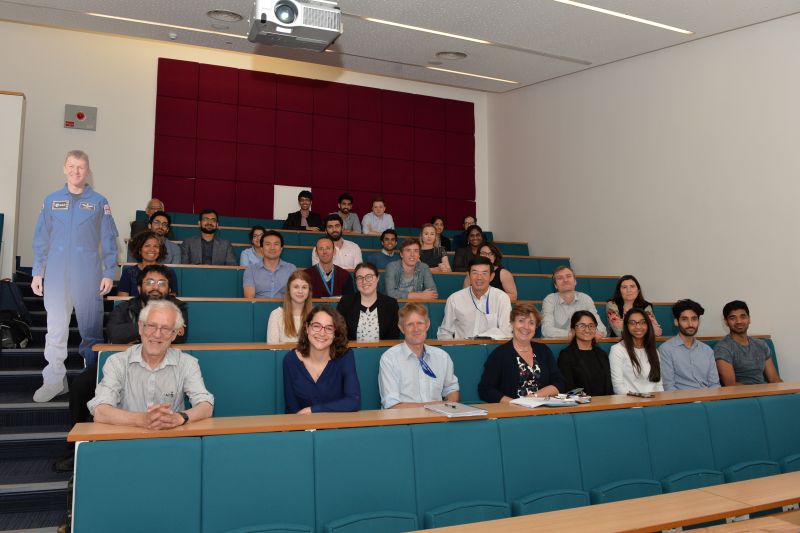Intercalated Biomedical Engineering and Clinical Materials
BSc (Intercal) (B9MU)
Intercalated Symposium
The Intercalated Symposium provides an exciting peer-reviewed scientific forum for students through their presentation of research in collaborative multi-disciplinary disciplines whilst additionally showcasing the programme to new incoming Intercalating candidates. These activities provide our medical students an opportunity to meet scientists and undertake research in multi-disciplinary themes across the university and with clinical teams at the Royal London Hospital. Join us for an exciting session and a chance to celebrate and be inspired by our 2021-2022 Intercalated Graduates on 31 May 2022.
Previous events
Programme on Tuesday 8th June 2021 (12 till 2 pm).
In July 2020, the Virtual Intercalated Symposium was attended by around 100 participants who joined remotely via MS Teams. Speakers covered presentations in medical devices, robotics, regenerative medicine, clinical materials and nanotechnology.
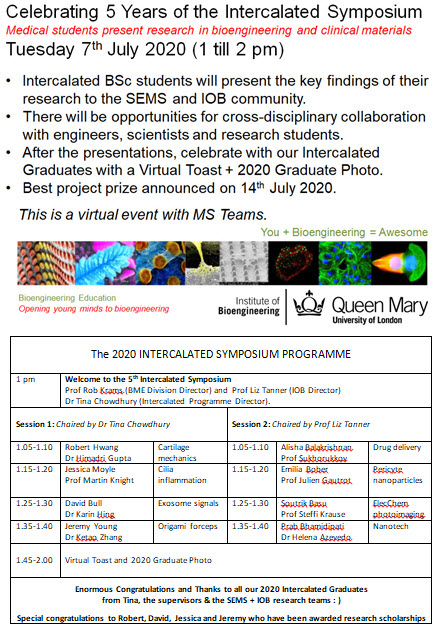
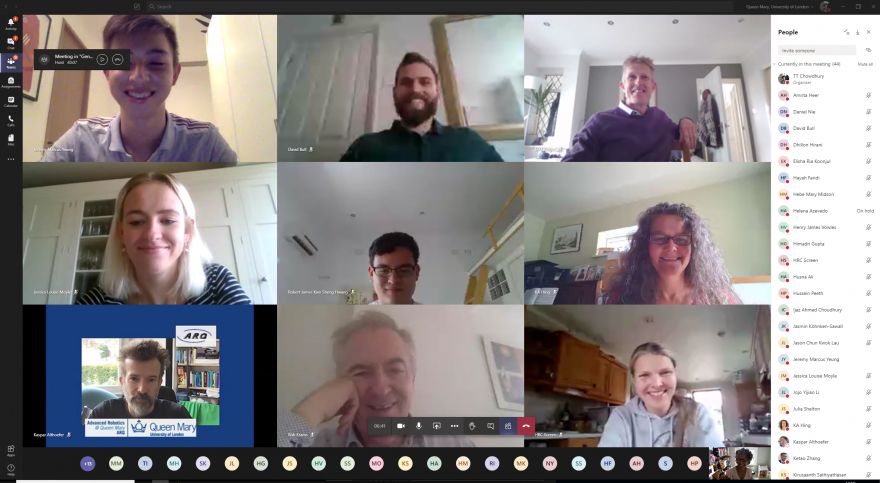
Previous Events
Medical students presented their research alongside leading scientists, clinicians and engineers from cross-disiplinary schools and institutes (eg. SEMS, SMD and the IOB). Presentations covered topics in cardiovascular disease, trauma, orthopaedics, sports medicine, gastroenterology, neuorscience, cancer, emergency medicine, fetal medicine and women's health.
Prof Alvaro Mata lead the session on biomaterials and nanotechnology. Speakers discussed drug delivery designs for antibacterial release, development of diganostics for biomarkers, HA-Tyr self-assembly, methods for exosome characterisation, the role of cilia in inflammation and mechanobiology and medical robotic devices to prevent internal bleeding eg. REBOA.
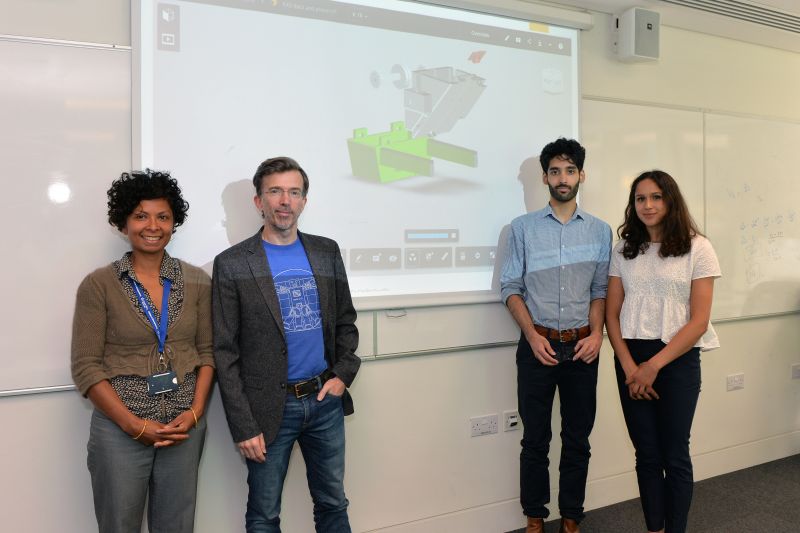
Tina chaired a parallel sesssion with Prof Rob Krams, Kaspar Althoefer, Thomas Iskratsch and Lorenzo Botto. The research presentations were highly inter-disciplinary with speakers showcasing novel devices and software coding tools for medical imaging and trauma detection or a needle tip to enable femoral access in emergency cases such as REBOA. Disciplines which combined cell/tissue mechanics with inflammation and regenerative medicine discussed the pathological mechanisms in atherscelerosis, the methods to repair and heal wounds in fetal membranes after trauma and ageing effects in cartilage and tendon.
There was an opportunity for the new and graduating students to network and discuss potential projects for further collaborations. Enormous congratulations to our intercalated graduates who won prizes for Rod Flower scholarship (Mithilaa Senthivel) and have submitted abstracts to attend international conferences.
MORE NEWS TO FOLLOW !
The 3rd Annual Intercalated Symposium took place on Friday 8th June 2018.
Session 1 was led by Dr Helena Azevedo with presentations covering topics in cell migration, nuclear and cytoskeletal cell mechanics, mechanotransduction, imaging, cell senescence, stem cell differentiation, nanocomposite design and biomaterial technology.
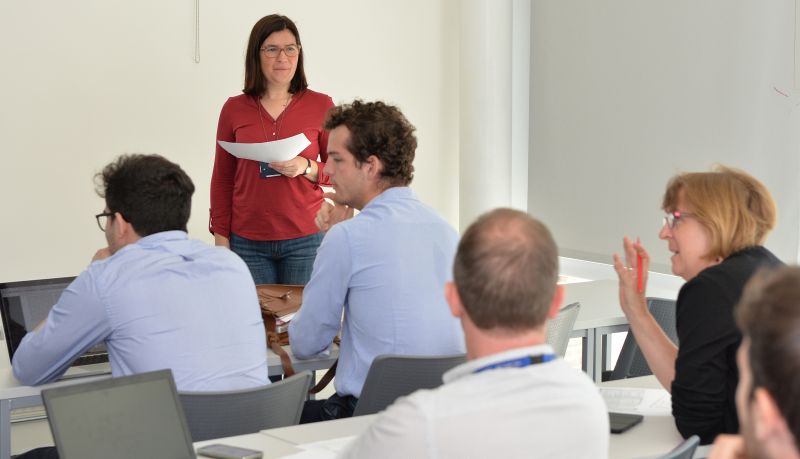
Session 2 covered a wide range of topics with presentations in microcapsule technology, machine learning, REBOA, printing technology, sensor developments, mechanisms for fetal membrane repair and hydrogel composite developments.
Prof Kaspar Althoefer took part in discussions involving medical engineering and device design technology for needle replacements and soft sensors.
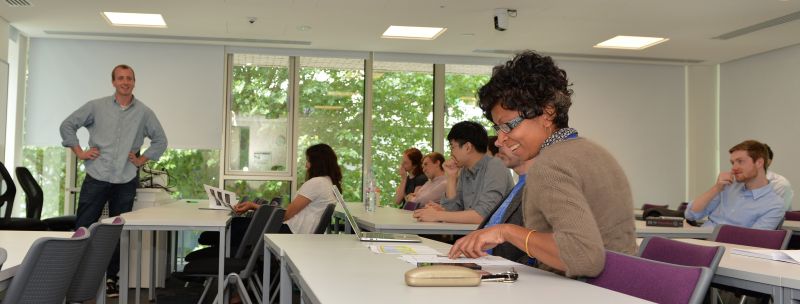
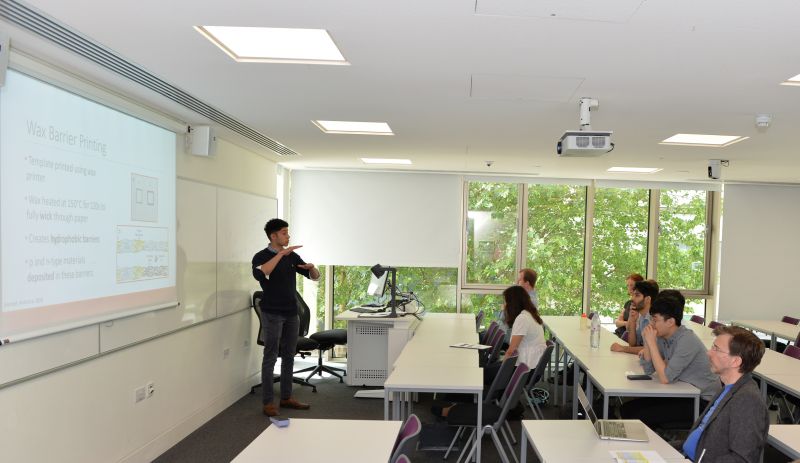
Enormous congratulations to our intercalated graduates who won prizes for IMechE (Akash Mehta), submitted patents for their product designs (Diane Velazquez-Pimental and Akash Mehta), received the Wolfson Award (Osama Omrani, £5, 000), Rod Flower scholarship (Frances Freer) and Beryl Beadle (intercalated best project) prize (Akash Mehta).
2017 INTERCALATED SYMPOSIUM
On 21st April 2017, students on the intercalated BSc programme in Biomedical Engineering and Clinical Materials presented the key findings of their research to the IOB and SEMS community.
The projects were multi-disciplinary and covered research themes from multiple types of disciplines. Hot topics include stem cells, skull bone mechanics, cancer cell microfluids, nanotechnology, 3D self-assembly, cilia or fetal membrane mechanobiology, tendon tissue mechanics and methods to promote drug delivery mechanisms.
Michalis Hadjiandreou designed a medical device for low cost surgery with Prof Kaspar Althoefer and Dr Lei Su.
Izem Onadim examined the effect of caffeine on endothelial cell function with Prof Steven Greenwald (SMD) and Prof Wen Wang (SEMS).
Ky-Lyn Tan presented 3D printing technology for hydrogels using peptides to promote self-assembly mechanisms with Prof Alvaro Mata.
Rebecca John described the inflammatory mechanisms that could lead to tissue weakening in the fetal membrane and prevent preterm birth.
The symposium raised many questions from the audience by staff and students.
After the presentations, there was a networking session where new intercalating students were invited to meet graduates and staff and discuss potential projects for the 2017-18 academic year.
Enormous congratulations to all our students who have been awarded Rod Flower and EJ Ball Scholarships.
INTERCALATED SYMPOSIUM - JUNE 2016
For example, Aumie Keethes discussed bioengineering approaches to heal fetal membrane defects after iatrogenic preterm premature rupture of the amniotic membrane.
Matthew Morgan discussed models to enhance the permeability effects of microcapsules with magnetic nanoparticles.
Due to the number of presentations, the talks ran in parallel with staff questioning students at two sessions.
There was an opportunity for the graduates to meet the new students who will be intercalating in Sept 2016.
Discussions continued over lunch where students had a chance to meet staff and discuss potential projects with colleagues from the IOB.
Enormous congratulations to all our graduates who worked extremely hard and to those who received RodFlower scholarships (Krishma Adatia, Onyinye Akpenyi, Muhammad Dowlut, Alexandra Oti and Dinoja Sivarajah) and EJ Ball Scholarships (Charmilie Chandrakumar, David Hawes, Aumie Keethes, Zanak Mehta, Aseem Mishra, Ahamed Nazar).
Well done to Charmille Chandrakumar who received £5, 000 from the Royal Collage of Surgeons. The research was presented at the OARSI conference in April 2016.
If you are wondering why Tim Peake is in the photos, please read Tina's blog called Staying Strong - Joints in Space


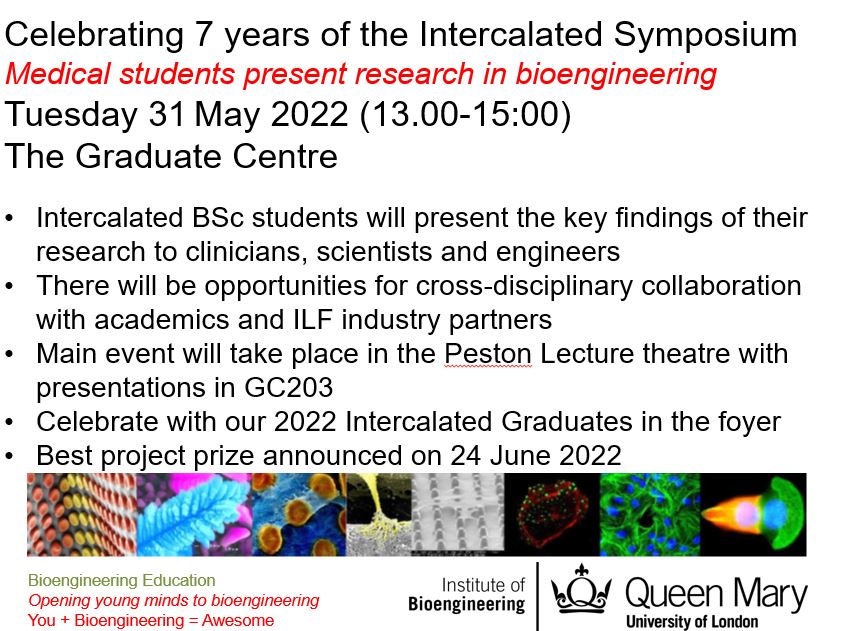
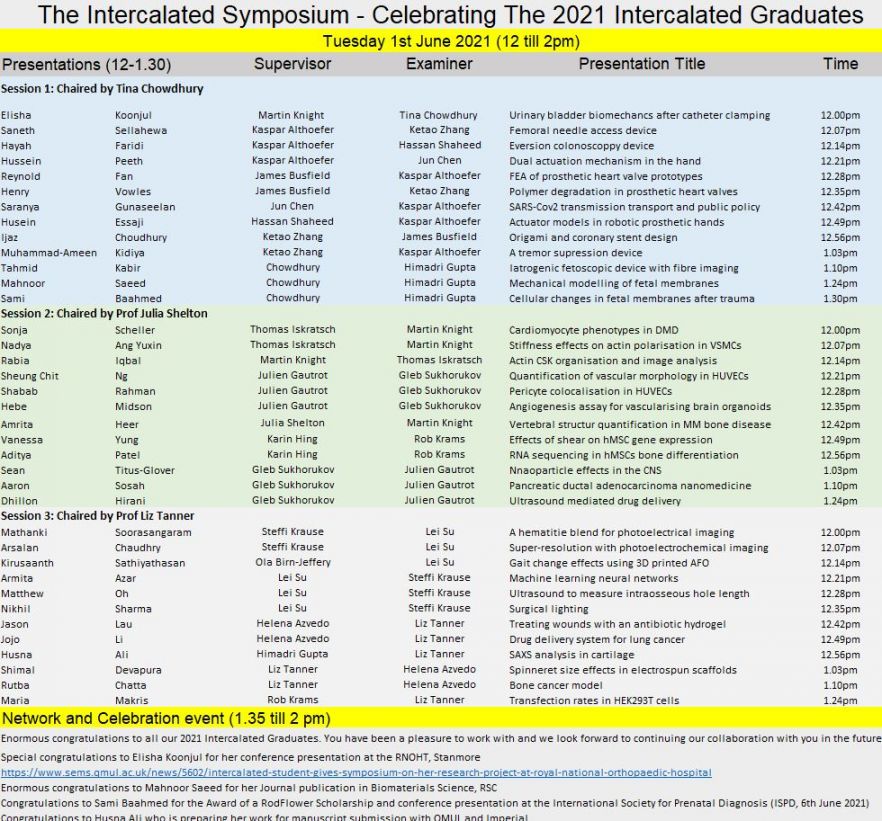
.JPG)
